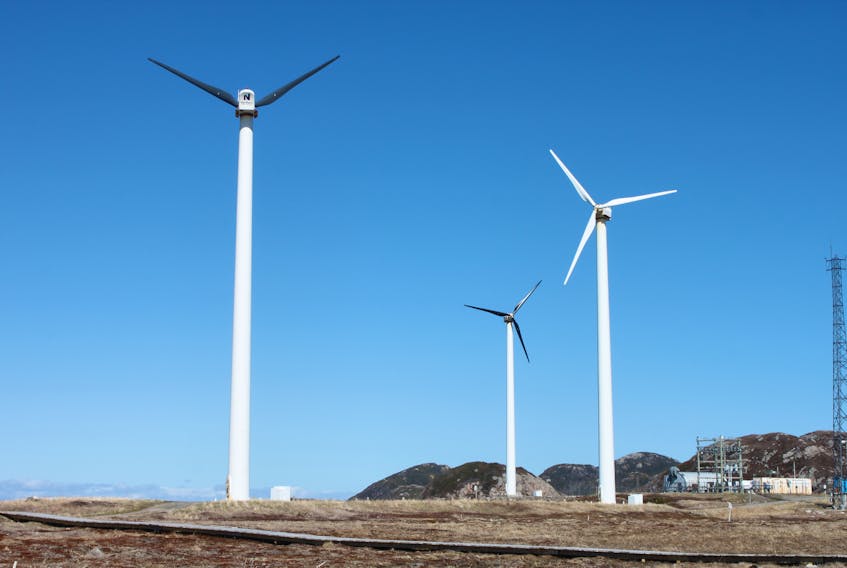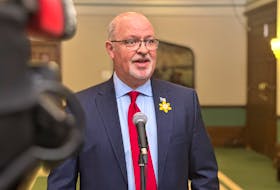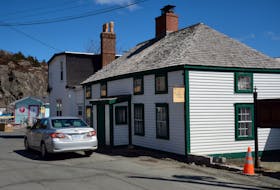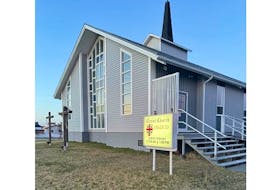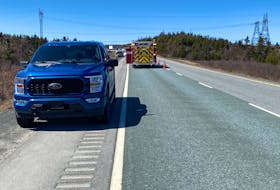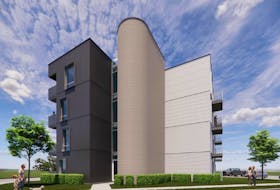ST. JOHN'S, N.L. — A call from the Government of Newfoundland and Labrador for expressions of interest for “renewable energy solutions” for a collection of the province’s isolated, diesel-powered electrical systems — communities all around the province — closed on Monday.
The call was issued by the Liberal government in April.
At close, there were 22 responses. Details have not been released.
“The (renewable energy) proposals will be assessed on the basis of their reflection of the guiding principles section of the expressions of interest,” a department rep stated in an email to The Telegram this week.
The proposals had to be renewable energy solutions and could, apart from new power generation, include proposals for demand management programs.
"...in the absence of meaningful processes of Indigenous engagement, Indigenous ownership and Indigenous control, renewable energies can actually create economic, environmental and social tensions of their own." — Nick Mercer
The proposals are being reviewed for reliability, cost-effectiveness, Indigenous/community partnership, integration with existing diesel equipment, the amount of displaced diesel energy, possible fit with federal funding programs and overall public interest.
The province’s work on the “isolated diesel” issue is being watched closely, including by participants in the Decarbonize NL conference happening Thursday and Friday in St. John’s. The conference is “envisioning a carbon-free economy in Newfoundland and Labrador,” looking beyond just carbon emissions in electricity supply. But one of the sessions will be on off-grid electricity.
Session co-chair Nick Mercer is a PhD candidate at the University of Waterloo and lead community energy planning researcher for the NunatuKavut Community Council. He told The Telegram there is a lot to consider in looking at the energy supply for isolated communities.
“I think the key takeaway, the key point for me and my research, is that people often assume that renewable energy technologies are a silver bullet for advancing sustainability. But I think it’s key to point out that in the absence of meaningful processes of Indigenous engagement, Indigenous ownership and Indigenous control, renewable energies can actually create economic, environmental and social tensions of their own,” he said in an interview Wednesday.
“I mean, we need to look no further than the Muskrat Falls project as an example of this. The line I always like to say is renewable energy is not always sustainable energy.”
Mercer said the conference session is meant to explicitly talk about the challenges of diesel dependence and the opportunities for transitioning to sustainable alternatives. The transition must be a thoughtful one, he suggested.

“If we’re going to have successful renewable energy projects, we need to implement legitimate processes of community engagement, community ownership and community control, and that’s what I’m seeking to do in my research and that’s what we’re seeking to do in this panel as well,” he said.
Community members should be involved from the point of a project’s conception, he said. And it’s where he thinks the province’s call for expressions of interest is starting a process that could fall short.
One of the guiding principles in the call was, “Where possible, submissions should include consultation and/or partnership with local communities, governments and Indigenous organizations to support their involvement, leadership and ownership of renewable energy projects or explain how the proponent intends to do so.”
Where possible.
“So if a project proposal is submitted where decisions have already been made, i.e. what type of generation source you’re going to use, or how the project is going to be compensated, or who are going to be the partners, in my view you’ve already violated your ethical obligations to those communities. So communities need to be involved before a project is ever proposed,” Mercer said.
Acceptance is less likely whenever projects are forced on communities, he said.
The province’s work is still in an early stage. As an “expressions of interest” call, the province is also not under any obligation to accept one or more of the proposals. The next step would likely be a more formal “request for proposals” (RFP).
Right now, there is no date fixed for a next step.
The Liberal government has included the replacement of diesel-fueled power in its draft plan for rate mitigation. By adding renewables, the government hopes to reduce diesel fuel costs by $7.4 million.
Federal funding programs that could be tapped in adding renewables to the province’s isolated systems also have deadlines. And there is a timeline for the province to have its rate mitigation measures in place for increases faced by customers on the main, interconnected grid.
Ideas sought for isolated diesel systems
The Government of Newfoundland and Labrador issued a call in April 2019 for expressions of interest in providing “renewable energy solutions” to 14 isolated power systems, being: Francois, Grey River, McCallum, Ramea, St. Brendan’s, Charlottetown, Norman Bay, Mary’s Harbour, Port Hope Simpson, St. Lewis, Black Tickle, Cartwright, Paradise River, L’Anse au Loup (L’Anse au Loup is currently served by diesel, but also, mainly power from Hydro-Québec).
Twitter: @TeleFitz
RELATED

